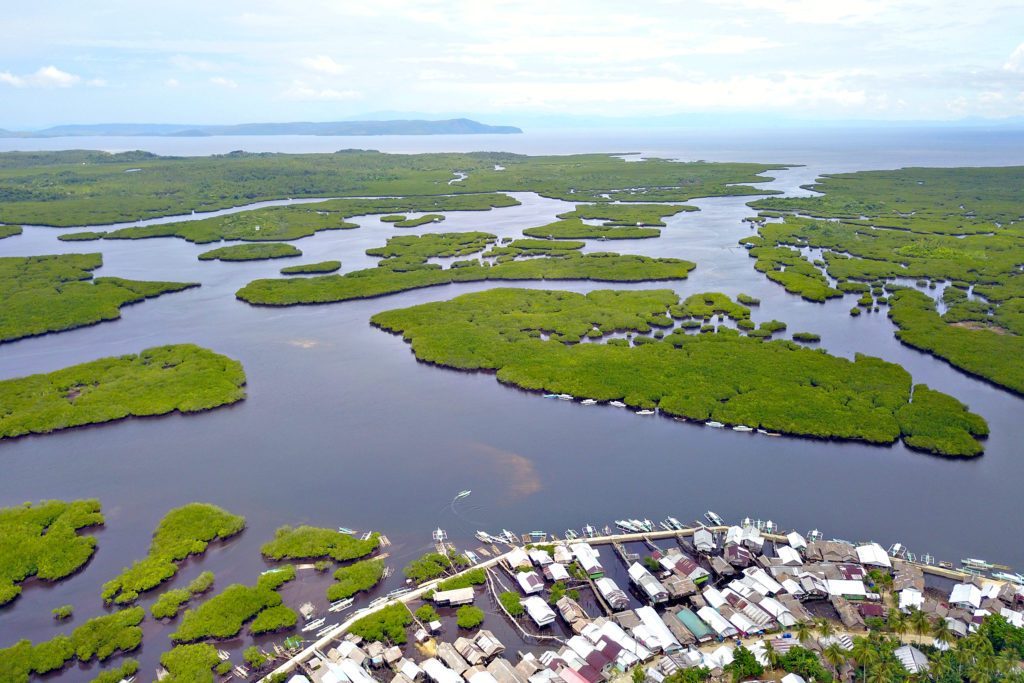
January 03, 2021 Sunday

Part of the 4,871 hectares of contiguous mangrove stand in the municipality of Del Carmen in Siargao. Photo from https://www.visitdelcarmen.com/.
MANILA, 4 January 2020 – A report titled, “Financing the Earth’s Assets: The Case for Mangroves as a Nature-based Climate Solution” reveals that regeneration of mangrove forests around the world could result in an $11.8 billion return by 2040 if carbon markets reflected the true value of nature.
The report, issued by Earth Security in December 2020, makes a strong investment case for tapping the potential of mangroves in the fight against climate change. As a carbon asset, mangrove forests have the potential to unlock 380 million tCO2 of sequestration by 2040. Five key markets that were identified for mangroves are nature-based investment funds, blue bonds (a subset of the green and climate bonds market), insurance, carbon market investors, and philanthropy.
Long valued as a natural defense on the coastline, mangroves help communities reduce the impacts of climate change, specifically in slowing down global heating, shielding communities against extreme weather conditions, halting the extinction of biodiversity, and supporting local economies.
The report identifies 40 locations across the world to form the “Mangroves 40 Cities Network”, including Puerto Princesa City, Palawan. This network will support the regeneration of mangrove forests through different projects within the locations chosen for their proximity to existing mangroves. Siargao Islands in Surigao Del Norte is also recognized in the report as an example of best practices in local mangrove regeneration, with key insights from the Municipality of Del Carmen.
Earth Security also proposes the development of a Municipal Mangrove Bond Fund to finance nature-based adaptation and provide the opportunity to pool different levels of investment risks across developed and emerging markets, creating a product that is viable in global fixed income markets.
The Climate Change Commission (CCC) welcomed the findings of the report, as it puts emphasis on nature-based solutions in the fight against climate change. The CCC further supports the call for collaboration among cities and towns worldwide that are home to mangrove forests, to enable a financing and regulatory environment that will ensure the advancement of programs and policies that aim to build climate and disaster resilience in local communities. As countries continue the difficult work to recover from the economic setbacks caused by COVID-19 pandemic, both human and natural systems must be strengthened to lessen the environmental, humanitarian, and economic impacts of climate change.